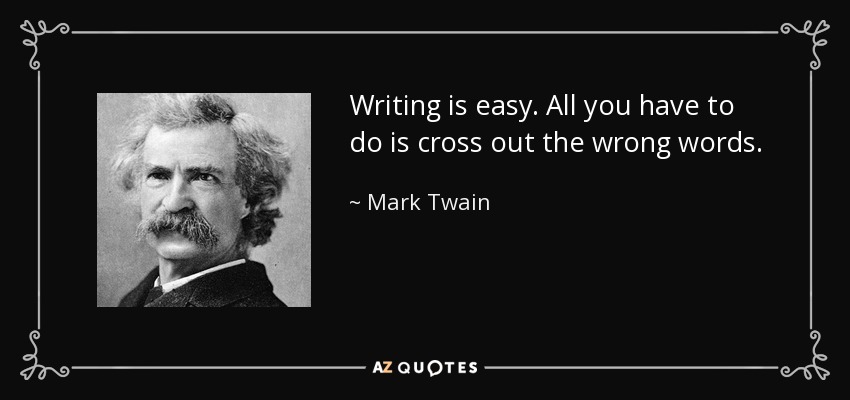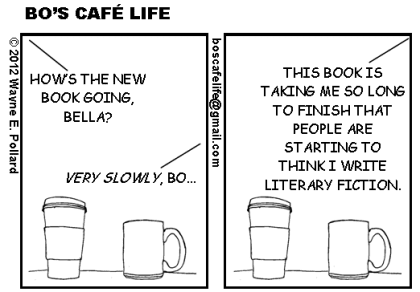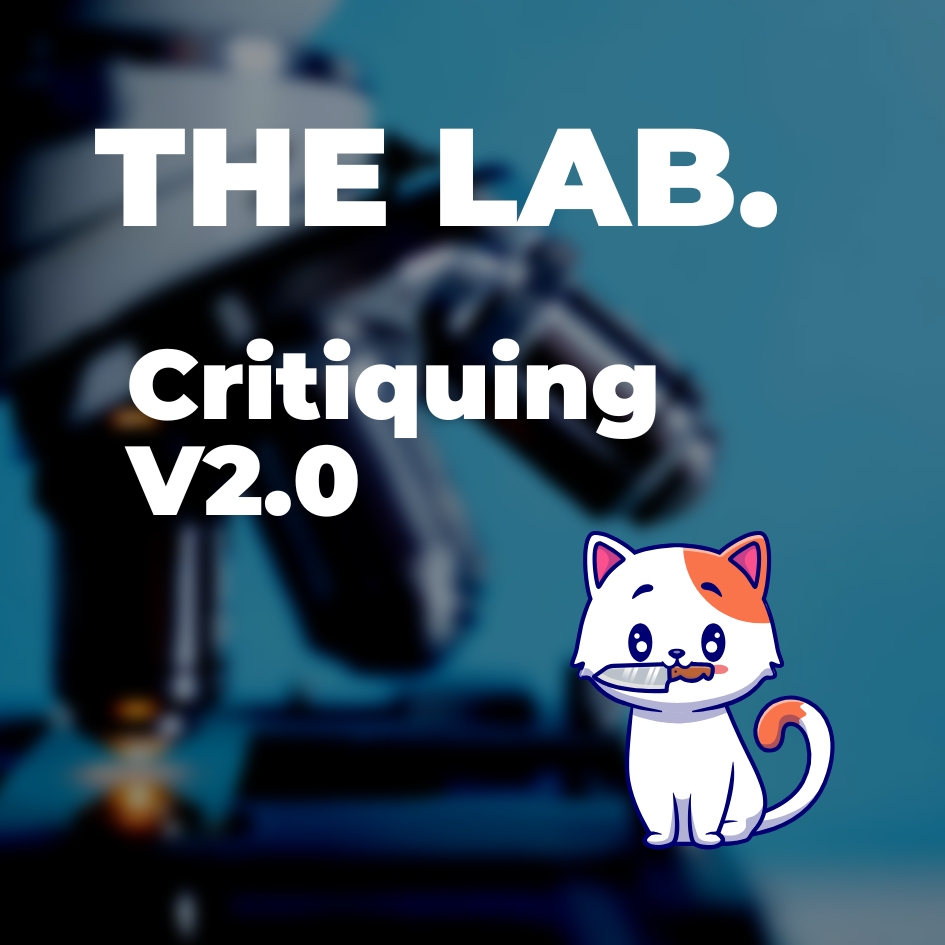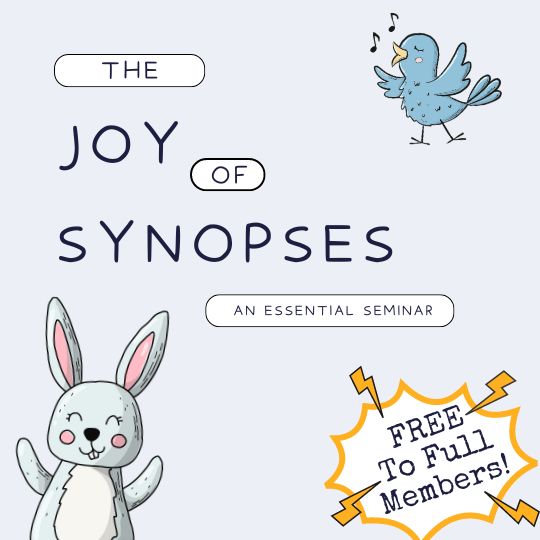Paul Whybrow
Full Member
Sometimes, when I read of an author's struggles over several years to complete their novel, I wonder what the problems were.
There's a myth among artists of all kinds, that unless a colossal struggle occurred, then the work will be bland. For example, you never hear of a Hollywood film being made where the original script was accepted without rewrites, where the ideal cast was assembled, and they all got on, for which funding was immediately provided and the director didn't exceed the budget...and the film went on to win awards, becoming a favourite with audiences worldwide.
In the world of books, it's more likely that a literary novel will involve multiple rewrites, arguments with the editor and despair for the author. By comparison, genre writing is considered to be a doddle, but anyone who's written it knows progress still involves travelling rocky roads.
Some authors succeed immediately, which isn't always a good thing. Arundhati Roy won the Man Booker Prize for Fiction with her first novel The God Of Small Things in 1997. She disliked the adulation and fame her success brought, devoting the next twenty years to political activism, human rights and environmental causes. Her second novel The Ministry of Utmost Happiness was politely reviewed in 2007 while being considered a disappointment.
Writing that's admired for being quickly drawn from the hat includes poetry and song lyrics. Samuel Coleridge's Kubla Khan came to him in an opium-induced dream. Writing it down, he was interrupted, making him forget how it ended. David Bowie wrote All The Young Dudes in two hours, to resurrect the career of one of his favourite bands Mott The Hoople...after they'd rejected Suffragette City, which seems like ingratitude to me.
We wonder at the inspiration that came to them, as the result of a dream or overhearing a throwaway phrase, marvelling at how that verse came out practically fully-formed. Now, imagine our response to a novelist divulging that they had little difficulty penning their story, it just rolled out of them seamlessly. For a start, it would be hard to believe, and also rather annoying!
Some novelists have been almost notoriously prolific, producing many titles of dubious literary quality, but which continue to be snapped up by adoring readers who love their style. Barbara Cartland pumped out her romances like a machine gun, narrating them to her secretary who typed them up. She's reckoned to have written about 722 titles, which sounds impressive until you look at the output of Mary Faulkner, who was in the Guinness Book of Records for a while as the world's most prolific novelist at 904 titles. Plagiarism may have been involved. L. Ron Hubbard churned out 1,084 books, including science-fiction, adventure, westerns, mystery and religion. That's nothing, compared to Spanish writer Corín Tellado, who published 5,000 titles, selling more than 400,000,000 books!
Plainly, they found writing easy.
Some famous authors struggled long and hard. Agatha Christie had difficulties with spelling all of her life, probably from undiagnosed dyslexia. John Irving continues to have problems reading, using a finger to follow words and aid comprehension. Margaret Atwood is currently enjoying great success with The Handmaid's Tale and the recently published sequel The Testaments, but she only began The Handmaid's Tale after giving up on a difficult novel. As she later said:
“Failure is just another name for much of real life: much of what we set out to accomplish ends in failure, at least in our own eyes. Who set the bar so high that most of our attempts to sail gracefully over it on the viewless wings of Poesy end in an undignified scramble or a nasty fall into the mud? Who told us we had to succeed at any cost?”
I've yet to abandon a project, though I've had a novella on the go this year, which has wandered off into the wilderness and become feral. I've been distracted by blogging, website building and struggling with technological problems.
I'll begin writing my sixth Cornish Detective novel tomorrow. In preparation, I've re-read the first five stories, to get reacquainted with my protagonist. I was reminded of how much I enjoyed writing them. There were awkward challenges, mainly fact-finding to do with forensics and police procedure, but the story flowed going where I wanted it to. I like to think of myself as more pantser than planner, but I still make note of things to include in the plot, including character names and phrases. There's a lot of detail I don't record before beginning a project, held in brain cells to do with forward planning. I've always been this way with complicated endeavours, such as rebuilding a car engine or rewiring a house, able to anticipate what I'd need to get the job done.
Thus, I don't find writing hard. Punctuation can be a bitch, though, especially commas. I detest editing, even though I know I'm improving the manuscript, which feels invisible to me at the time. I also dislike the self-promoting and marketing I've been doing this year, finding it hard to take myself seriously as an author and bemused by describing my books as commercial products, which need to be proclaimed as essential reading if they're to sell.
What part of writing do you find hard?
Is agony necessary to write a masterpiece?

There's a myth among artists of all kinds, that unless a colossal struggle occurred, then the work will be bland. For example, you never hear of a Hollywood film being made where the original script was accepted without rewrites, where the ideal cast was assembled, and they all got on, for which funding was immediately provided and the director didn't exceed the budget...and the film went on to win awards, becoming a favourite with audiences worldwide.
In the world of books, it's more likely that a literary novel will involve multiple rewrites, arguments with the editor and despair for the author. By comparison, genre writing is considered to be a doddle, but anyone who's written it knows progress still involves travelling rocky roads.
Some authors succeed immediately, which isn't always a good thing. Arundhati Roy won the Man Booker Prize for Fiction with her first novel The God Of Small Things in 1997. She disliked the adulation and fame her success brought, devoting the next twenty years to political activism, human rights and environmental causes. Her second novel The Ministry of Utmost Happiness was politely reviewed in 2007 while being considered a disappointment.
Writing that's admired for being quickly drawn from the hat includes poetry and song lyrics. Samuel Coleridge's Kubla Khan came to him in an opium-induced dream. Writing it down, he was interrupted, making him forget how it ended. David Bowie wrote All The Young Dudes in two hours, to resurrect the career of one of his favourite bands Mott The Hoople...after they'd rejected Suffragette City, which seems like ingratitude to me.
We wonder at the inspiration that came to them, as the result of a dream or overhearing a throwaway phrase, marvelling at how that verse came out practically fully-formed. Now, imagine our response to a novelist divulging that they had little difficulty penning their story, it just rolled out of them seamlessly. For a start, it would be hard to believe, and also rather annoying!
Some novelists have been almost notoriously prolific, producing many titles of dubious literary quality, but which continue to be snapped up by adoring readers who love their style. Barbara Cartland pumped out her romances like a machine gun, narrating them to her secretary who typed them up. She's reckoned to have written about 722 titles, which sounds impressive until you look at the output of Mary Faulkner, who was in the Guinness Book of Records for a while as the world's most prolific novelist at 904 titles. Plagiarism may have been involved. L. Ron Hubbard churned out 1,084 books, including science-fiction, adventure, westerns, mystery and religion. That's nothing, compared to Spanish writer Corín Tellado, who published 5,000 titles, selling more than 400,000,000 books!
Plainly, they found writing easy.
Some famous authors struggled long and hard. Agatha Christie had difficulties with spelling all of her life, probably from undiagnosed dyslexia. John Irving continues to have problems reading, using a finger to follow words and aid comprehension. Margaret Atwood is currently enjoying great success with The Handmaid's Tale and the recently published sequel The Testaments, but she only began The Handmaid's Tale after giving up on a difficult novel. As she later said:
“Failure is just another name for much of real life: much of what we set out to accomplish ends in failure, at least in our own eyes. Who set the bar so high that most of our attempts to sail gracefully over it on the viewless wings of Poesy end in an undignified scramble or a nasty fall into the mud? Who told us we had to succeed at any cost?”
I've yet to abandon a project, though I've had a novella on the go this year, which has wandered off into the wilderness and become feral. I've been distracted by blogging, website building and struggling with technological problems.
I'll begin writing my sixth Cornish Detective novel tomorrow. In preparation, I've re-read the first five stories, to get reacquainted with my protagonist. I was reminded of how much I enjoyed writing them. There were awkward challenges, mainly fact-finding to do with forensics and police procedure, but the story flowed going where I wanted it to. I like to think of myself as more pantser than planner, but I still make note of things to include in the plot, including character names and phrases. There's a lot of detail I don't record before beginning a project, held in brain cells to do with forward planning. I've always been this way with complicated endeavours, such as rebuilding a car engine or rewiring a house, able to anticipate what I'd need to get the job done.
Thus, I don't find writing hard. Punctuation can be a bitch, though, especially commas. I detest editing, even though I know I'm improving the manuscript, which feels invisible to me at the time. I also dislike the self-promoting and marketing I've been doing this year, finding it hard to take myself seriously as an author and bemused by describing my books as commercial products, which need to be proclaimed as essential reading if they're to sell.
What part of writing do you find hard?
Is agony necessary to write a masterpiece?






